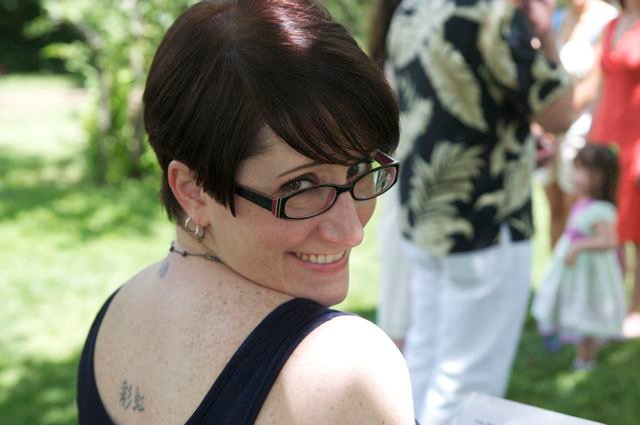Lost: "He's Our You"
Daniel Faraday's closed-loop theory of time-travel might have just been blown to smithereens. Or not. Who the frak knows -- this is Lost, after all.
The final moments of "He's Our You" offered the literal bang of Sayid shooting and apparently killing Child!Ben as a matter of fulfilling his "purpose" in returning to the Island. The way I see it, there are a couple of possible storyline paths from here on out:
Sayid did, in fact, kill Child!Ben and all future events are now up for grabs. Faraday's time-travel theories and explanations have felt pretty solid thus far -- for as much sense as can be made out of time-travel. When not in the present, no one is supposed to do anything to significantly alter what is to become the future. Therefore, if Child!Ben is indeed dead, then what does that do to the Island in the future? Will Ben's unconscious body -- laying where Sun left him -- simply disappear? Will the feud with Charles Widmore cease to exist? Furthermore, will Charles Widmore appear on the Island shortly and take over? It was Richard who recruited Juliet, but it was Ben who kept her there, so will she now disappear too (having simply left the island and gone home when she wanted)? I could go on and on, but you get the point. Ben's death as a young boy changes the very fabric of the Island and the life that the Lostaways have built.
Sayid only thought he killed Child!Ben and instead, inadvertently created the villain that Ben was to become. Faraday says that the characters aren't supposed to change anything in the past, but he also heavily implies that the characters are unable to do anything to alter what is to become the future. If no one actually has the power to change the world to come, then the Island is, ironically, static. Although, it may not be the characters with the power (or without), it may simply be the Island. It appears that the Island can not only heal (Locke, Rose), but it can also raise the dead (Locke, Christian). Child!Ben may be legitimately deceased for a moment or two, but then the Island can resurrect him and send him on his way, now horribly pissed and confused over the assassination attempt made by the man he was only trying to help. Ben had dealt with abuse by his father his entire life, yet somehow he still seemed unscathed. This actually may have been the defining turning point in Ben's life.
I think Sayid's intention was born out of both loyalty and revenge. Loyalty in wanting to save his friends from the impending Dharma Initiative massacre and sparing them the future machinations of a seemingly omnipresent and omnipotent Ben. And revenge against Ben over the clear and cavernous rift between them (I'm guessing there's more to that story given that Sayid's newfound hatred runs so, so deep).
Sayid is a killer, like Ben says, but one who operates out of necessity not enjoyment. Sayid detests killing people (even those that seemingly deserve it) and he detests being able to kill people. But he understands that sometimes people have to do what needs to be done. So with great burden, he accepts his fate as a "killer". And it has brought him to this point.
It was interesting to see Oldham -- Dharma's version of Sayid -- directly juxtaposed with Sayid. They are both considered "the torturer", but where Sayid operates with precision, Oldham plays more of a crapshoot. ("Maybe I should use half a dropper. Ooops.") Oldham is older, unkempt, somewhat frail, and most importantly, he takes pleasure in the work that he does. He has a sinister quality of which Sayid could never dream.
So, circling back to the possibilities, my choice of storyline is the first scenario. It would serve to blow the canvas wide open and new storylines could potentially be limitless. Scenario #2, however, is more interesting on a philosophical level. So I guess the question is: are the producers aiming for a mythology and an endgame that is tangible or intangible?
Randoms...
Thoughts?






0 crushes:
Post a Comment